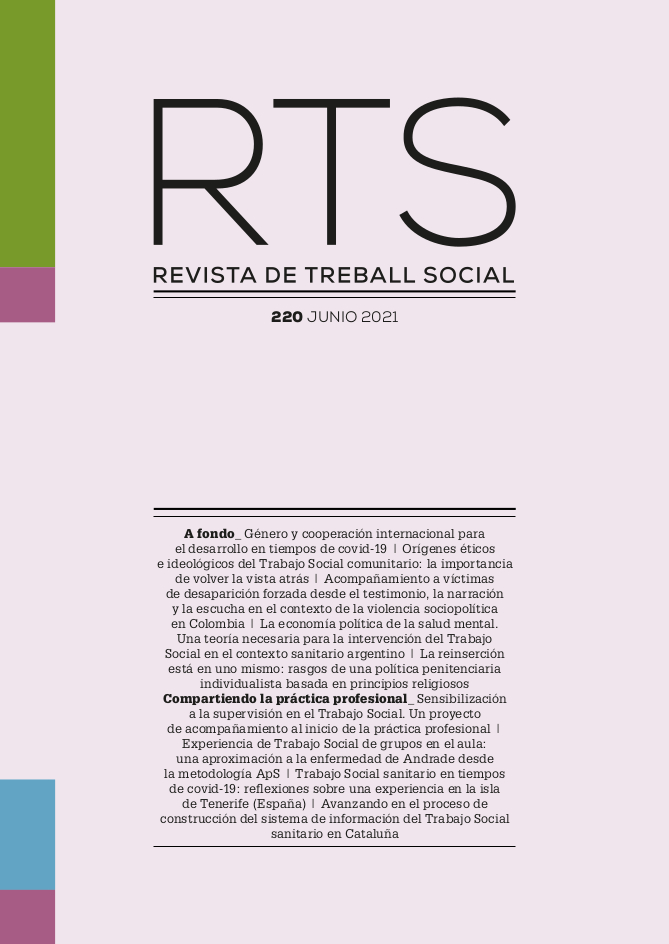Ever since its origins social work has put forward actions to alter a situation which, based on several criteria, is judged as undesirable. Its growth and legitimacy have been fundamentally founded on the response to situations of need that have emerged in the light of the development of social organisation models.
We currently live in a society that is progressively generating greater inequality between those who have economic resources and those who have been stripped of them. In turn, this inequality generates divisions in other spheres. At community level, feelings of misunderstanding and mistrust between highly different life experiences grow, making social cohesion a difficult challenge to achieve.
Reviewing the history of our profession seems more urgent than ever before: firstly, because it is not necessary to invent everything again; secondly, to prevent the community dimension from being used based on trends external to its meaning and approach.
To achieve this, in this paper we will set out a theoretical approach to social work in general and, specifically, to community social work by: a) discovering the most relevant socio-historical events with an impact on its development; b) addressing the development of the assumptions and beliefs on which it was inspired; and c) reflecting on its implementation in the Spanish State.





